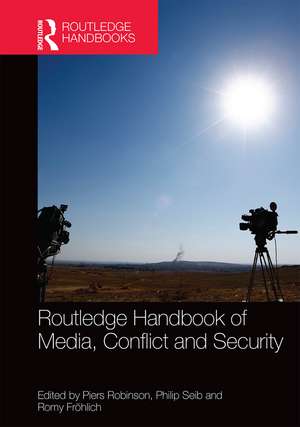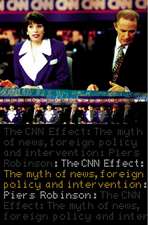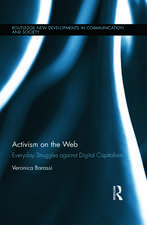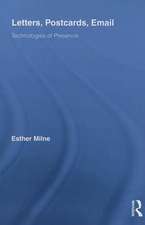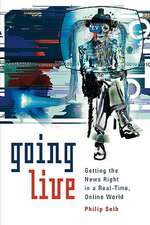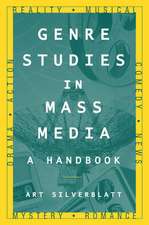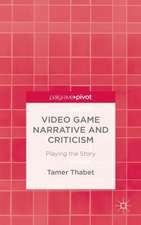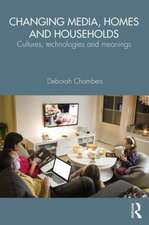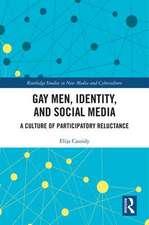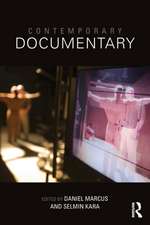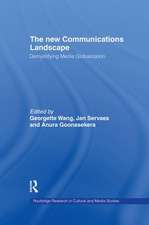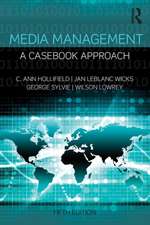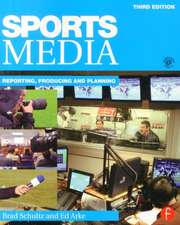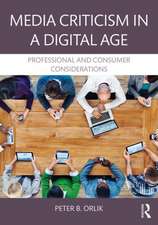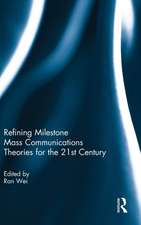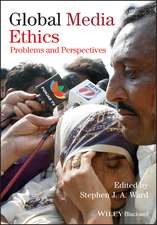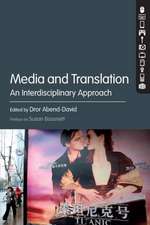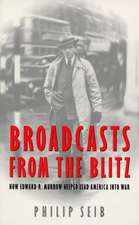Routledge Handbook of Media, Conflict and Security
Editat de Piers Robinson, Philip Seib, Romy Frohlichen Limba Engleză Hardback – 9 noi 2016
The academic sub-field of media and conflict has developed and expanded greatly over the past two decades. Operating across a diverse range of academic disciplines, academics are studying the impact the media has on governments pursuing war, responses to humanitarian crises and violent political struggles, and the role of the media as a facilitator of, and a threat to, both peace building and conflict prevention. This handbook seeks to consolidate existing knowledge by linking the body of conflict and media studies with work in security studies.
The handbook is arranged into five parts:
- Theory and Principles.
- Media, the State and War
- Media and Human Security
- Media and Policymaking within the Security State
- New Issues in Security and Conflict and Future Directions
| Toate formatele și edițiile | Preț | Express |
|---|---|---|
| Paperback (1) | 422.96 lei 43-57 zile | |
| Taylor & Francis – 30 iun 2020 | 422.96 lei 43-57 zile | |
| Hardback (1) | 1243.49 lei 43-57 zile | |
| Taylor & Francis – 9 noi 2016 | 1243.49 lei 43-57 zile |
Preț: 1243.49 lei
Preț vechi: 1671.60 lei
-26% Nou
Puncte Express: 1865
Preț estimativ în valută:
238.02€ • 258.63$ • 200.06£
238.02€ • 258.63$ • 200.06£
Carte tipărită la comandă
Livrare economică 21 aprilie-05 mai
Preluare comenzi: 021 569.72.76
Specificații
ISBN-13: 9780415712910
ISBN-10: 0415712912
Pagini: 370
Ilustrații: 5
Dimensiuni: 174 x 246 mm
Greutate: 0.79 kg
Ediția:1
Editura: Taylor & Francis
Colecția Routledge
Locul publicării:Oxford, United Kingdom
ISBN-10: 0415712912
Pagini: 370
Ilustrații: 5
Dimensiuni: 174 x 246 mm
Greutate: 0.79 kg
Ediția:1
Editura: Taylor & Francis
Colecția Routledge
Locul publicării:Oxford, United Kingdom
Public țintă
Postgraduate, Professional, and UndergraduateCuprins
Introduction, Piers Robinson, Phil Seib and Romy Fröhlich
PART I: Theory and Principles
1. Secrets and Lies: on the ethics of conflict coverage, Richard Keeble
2. Gender, Media, and Security, Romy Fröhlich
3. Investigating the Culture-Media-Security Nexus, Holger Pötzsch
4. The Media-Security Nexus: Researching Ritualised Cycles of Insecurity, Ben O’Loughlin and Marie Gillespie
5. Critical Perspectives on Media and Conflict, Des Freedman
6. Theorising Media/State Relations and Power, Phil Hammond
PART II: Media, the State and War
7. Visual Truths: Online News and Conflict Reporting, Stuart Allan and Chindu Sreedharan
8. Media, War, and Public Opinion, Sean Aday
9. Theorizing State-media Relations During War and Crisis, Steven Livingston
10. Media, Dissent, and Anti-War Movements, Andrew Rojecki
11. Public Diplomacy, Craig Hayden
12. Mapping a century in media coverage of war and conflict, Peter Goddard and Katy Parry
PART III: Media and Human Security
13. Citizen Voice in War and Conflict Reporting, Lilie Chouliaraki
14. The CNN effect and Humanitarian Action, Piers Robinson
15. News coverage, peacemaking and peacebuilding, Jake Lynch
16. Continuing Post-Conflict Coverage, Marie-Soleil Frère
17. Media and Human Rights, Ekaterina Balabanova
Part IV Media and Policymaking within the Security State
18. News media and the intelligence community, Vian Bakir
19. Covering acts of terrorism, Heather Epkins
20. Cybersecurity, Myriam Dunn Cavelty
21. Social Media and Revolution, Philip Howard & Samuell Woolley
PART V: New Issues in Security and Conflict and Future Directions
22. Media, the Environment, and Global Security, Neil Gavin
23. Contemporary Propaganda and Persuasion During Conflict, David Miller, Piers Robinson and Vian Bakir
24. The Responsibility to Protect Doctrine and the World’s Press: a new development in human security?, Simon Cottle with the assistance of Charles Martin Hughes
25. Conclusion: Looking ahead, Piers Robinson, Phil Seib and Romy Fröhlich
PART I: Theory and Principles
1. Secrets and Lies: on the ethics of conflict coverage, Richard Keeble
2. Gender, Media, and Security, Romy Fröhlich
3. Investigating the Culture-Media-Security Nexus, Holger Pötzsch
4. The Media-Security Nexus: Researching Ritualised Cycles of Insecurity, Ben O’Loughlin and Marie Gillespie
5. Critical Perspectives on Media and Conflict, Des Freedman
6. Theorising Media/State Relations and Power, Phil Hammond
PART II: Media, the State and War
7. Visual Truths: Online News and Conflict Reporting, Stuart Allan and Chindu Sreedharan
8. Media, War, and Public Opinion, Sean Aday
9. Theorizing State-media Relations During War and Crisis, Steven Livingston
10. Media, Dissent, and Anti-War Movements, Andrew Rojecki
11. Public Diplomacy, Craig Hayden
12. Mapping a century in media coverage of war and conflict, Peter Goddard and Katy Parry
PART III: Media and Human Security
13. Citizen Voice in War and Conflict Reporting, Lilie Chouliaraki
14. The CNN effect and Humanitarian Action, Piers Robinson
15. News coverage, peacemaking and peacebuilding, Jake Lynch
16. Continuing Post-Conflict Coverage, Marie-Soleil Frère
17. Media and Human Rights, Ekaterina Balabanova
Part IV Media and Policymaking within the Security State
18. News media and the intelligence community, Vian Bakir
19. Covering acts of terrorism, Heather Epkins
20. Cybersecurity, Myriam Dunn Cavelty
21. Social Media and Revolution, Philip Howard & Samuell Woolley
PART V: New Issues in Security and Conflict and Future Directions
22. Media, the Environment, and Global Security, Neil Gavin
23. Contemporary Propaganda and Persuasion During Conflict, David Miller, Piers Robinson and Vian Bakir
24. The Responsibility to Protect Doctrine and the World’s Press: a new development in human security?, Simon Cottle with the assistance of Charles Martin Hughes
25. Conclusion: Looking ahead, Piers Robinson, Phil Seib and Romy Fröhlich
Notă biografică
Piers Robinson is Professor of Politics, Society and Political Journalism at the University of Sheffield, UK.
Philip Seib is Professor of Journalism and Public Diplomacy and Professor of International Relations at the University of Southern California, USA.
Romy Fröhlich is Professor of Communication Science and Media Research at Ludwig-Maximilians-University Munich, Germany.
Philip Seib is Professor of Journalism and Public Diplomacy and Professor of International Relations at the University of Southern California, USA.
Romy Fröhlich is Professor of Communication Science and Media Research at Ludwig-Maximilians-University Munich, Germany.
Descriere
This new Handbook links the growing body of media and conflict research with the field of security studies.
